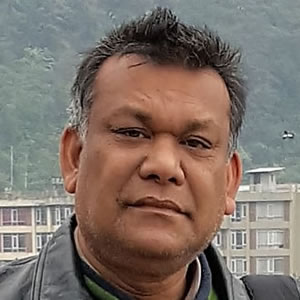
ORGANIZED BY:

Module 1 - Agricultural Commodities and Sustainability Certification:
Increasing the Demand for Sustainable Certified Palm Oil – What is the Missing Link?

Mr. Salahudin Yaacob
Committed to making a difference and doing the right thing, Salahudin has chosen a path that allows him to do just that, within an area that he has the expertise for.
Salahudin Yaacob joined the Round Table on Sustainable Palm Oil (RSPO) in 2011 as its Technical Director. Salahudin brings with him more to 20 years of experience with a number of reputable private and non-governmental organizations.
Prior to joining RSPO, Salahudin worked for SGS the world largest certification body. His role was to manage the country affiliate’s Natural Resource Certification Section operating the forestry and oil palm certification programme. He is a qualified Lead Auditor for forest management and chain of custody certification under the FSC (Forest Stewardship Council), PEFC (Programme for the Endorsement of Forest Certification schemes) and MTCC (Malaysia Timber Certification Council) certification schemes with more than 20 years of experience at national, regional and international levels. He was also involved in RSPO and ISCC (International Standard for Carbon Certification) certification since the start of those certification schemes. He has verified and audited various forestry and oil palm plantation operation and its processing facilities in SEA countries, China, India, Europe, Africa and Latin America.
Salahudin holds a Masters of Philosophy in Environmental and Natural Resources Management from University Malaya. Trained as botanist, he has worked towards the promotion of responsible management of the environment and natural resources across the region involving private business establishment, government agencies and Non-Governmental Organisations (NGO).
Through his many years of experience, Salahudin has gained a strong foothold of the audit system as well as the overall management and operation of certification scheme, assurance, oversight and its M&E. Salahudin is also a committee member of a number working groups at national and international levels that focused on eco-labelling, forest certification, sustainability and oil palm certification. During his free time Salahudin enjoys reading, sports and outdoor activities.
Responsibilities in his current position at RSPO include strengthening engagement with local authorities, reaching out to Non Governmental Organisation and Civil Societies as well as providing value added relations with industry players particularly the RSPO members.
VIEW PROFILE
The call for making sustainable palm oil the norm is proven to be a moving target. The volume of CPO produced globally has been almost doubled since 2004 when RSPO was established. Commercial oil palm plantations are now being established not only in Malaysia and Indonesia, but also in many countries in Africa and Latin America, resulting in higher production of global CPO. With increased awareness on good practice and the need to reduce impacts on people and environment, fortunately many of those new plantings are done following the required standards.
RSPO has grown tremendously as a membership organization. With close to 5000 members, the organization is at the forefront of promoting sustainability in the industry. The grower members are generating around 15 million mt of CSPO, of which around 50 % are being taken up through the RSPO trading system. Some significant volume are also being taken up by the market through other schemes. Around 70 % of the markets in the US and Europe are taking up CSPO, but progress are very slow in other major markets such as India and China. Mediocre uptake of CSPO is also observed in the producing countries such as Malaysia and Indonesia.
Awareness on sustainability is still very weak resulting in minimum pull from market such as India, China. Demand for CSPO in producing countries are almost nonexistence. RSPO has come up with the concept of shared responsibility where the consuming RSPO members must have a time bound plan in sourcing and using CSPO. Such concept not only provide provide a level playing field, but more importantly create natural demand for CSPO. Last but not least, the government need to play their role in encouraging the production and uptake of CSPO.
RSPO has grown tremendously as a membership organization. With close to 5000 members, the organization is at the forefront of promoting sustainability in the industry. The grower members are generating around 15 million mt of CSPO, of which around 50 % are being taken up through the RSPO trading system. Some significant volume are also being taken up by the market through other schemes. Around 70 % of the markets in the US and Europe are taking up CSPO, but progress are very slow in other major markets such as India and China. Mediocre uptake of CSPO is also observed in the producing countries such as Malaysia and Indonesia.
Awareness on sustainability is still very weak resulting in minimum pull from market such as India, China. Demand for CSPO in producing countries are almost nonexistence. RSPO has come up with the concept of shared responsibility where the consuming RSPO members must have a time bound plan in sourcing and using CSPO. Such concept not only provide provide a level playing field, but more importantly create natural demand for CSPO. Last but not least, the government need to play their role in encouraging the production and uptake of CSPO.
REGISTER OR LOGIN TO VIEW FULL REPORT
REGISTER OR LOGIN TO VIEW PRESENTATION SLIDES
Questions & Answers
Please login to post comments.




